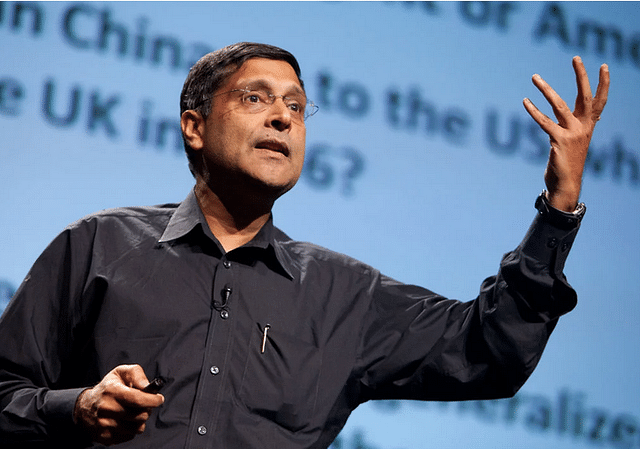
Arvind Subramanian: An Inclusive Appointment
Despite his uncharitable remarks on Modi Sarkar’s maiden Budget, Arvind Subramanian is appointed chief economic advisor. Subramanian is a die-hard growth-wallah. It’s a good move.
The BJP-led NDA government has appointed Arvind Subramanian as the new chief economic adviser (CEA), a position that had been vacant since May 26, the day when the new government came to power.
An economic adviser guides the government on policy issues relating to industrial development, manufacturing, bilateral and multilateral trade, taxes and duties related to industries, as well as a host of other statistical functions such as compiling and releasing monthly inflation and production indices.
Subramanian is widely regarded as a pro-growth economist, and so his appointment as CEA further reinforces the government’s resolve to implement reforms that focus on spurring economic revival, mainly through growth-oriented policies.
Much like his predecessor and the present RBI governor Raghuram Rajan, Subramanian boasts stellar academic credentials as well as substantial work experience at some of the world’s highly regarded financial institutions and think tanks. He is a Senior Fellow at the Peterson Institute for International Economics as well as at the Center for Global Development. He is a senior research professor at the Johns Hopkins University and has also taught at Harvard University’s Kennedy School of Government in 1999-2000.
Subramanian has worked at International Monetary Fund, where he served as an assistant director in the research department. He has previously also served at the General Agreement on Tariffs and Trade and has written extensively on trade and its effects on developing countries.
In a brief interview to the media immediately following the public announcement, Subramanian hinted at focusing on ensuring macroeconomic stability, greater employment, rapid investment, and growth. He also stressed on creating greater opportunities for all segments of the society. These goals, not surprisingly, seem to be in line with Modi’s resolve to boost domestic manufacturing, a monumental task that will inevitably require policy initiatives that encourage large-scale investments from both domestic as well as foreign investors.
Subramanian’s appointment comes across as particularly noteworthy given the fact that he has not always been supportive of the incumbent government’s actions. In an article written for Peterson Institute immediately following the budget day (on July 11), Subramanian excoriated the Modi government for its unrealistic estimates on tax revenues, insufficient provisions for reining in fiscal deficit, and a lack of both timeline as well as action on issues of subsidies and goods and services tax.
Yet, the fact that Subramanian has been appointed for a major advising role despite his criticisms of the budget throws positive light on a government that has been repeatedly accused, often times unjustifiably so, of being disproportionately authoritative and even squashing dissent. The problem, it seems, stems from confusing authoritativeness with decisiveness. While the former may constitute immoral from a democratic point of view, the latter is important for any system to function effectively.
Interestingly, in an online answer to The Economist magazine’s question as to whether authoritarian governments pose an impediment to growth, Subramanian pointed out that institutional underpinnings – rule of law, order, protection of property rights – and provision of growth-promoting institutions are far more pertinent to growth. He also pointed out that it is “difficult to establish causation from democracy/autocracy to growth”. In certain cases, even authoritative figures such as Singapore’s Lew Kuan Yew have played instrumental roles in ensuring their country’s development — merely by creating the right institutions.
As India struggled with a flagging economy in 2012, Subramanian also participated in an online debate with Shashi Tharoor over the question of whether ‘India was losing its way’. Arguing that it was, Subramanian asserted that the Indian State had failed to provide a range of services such as health, education, water, and sanitation. To address these problems, it is imperative to have “a revitalised state that performs more limited functions, but performs them well and much better than it currently does”.
In the same debate, Subramanian also railed at the politics of populism that is reflected in countless freebies and handouts doled out under the guise of promoting equity. Stressing the need for the government to focus on underlying incentives while formulating policies, he noted that the power sector’s problems, for example, “have less to do with insufficient resources as the fact that people are not expected to pay fully for the power they receive.”
Subramanian’s pro-growth proclivity coupled with incumbent government’s political will to implement reforms, albeit in incremental form, will hopefully ensure that India witnesses enhanced growth, and thus greater employment, in the years to follow.